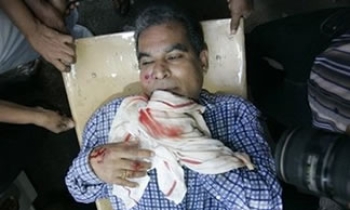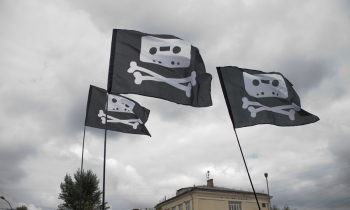THAT old fox Rupert Murdoch has frightened the chickens again. He recently barked that the newspaper industry’s "rivers of gold" by which he meant the revenues from classified advertising were drying up. Panic has ensued in some henhouses.
In Media File recently, I wrote about how Knight Ridder, the second largest newspaper chain in the United States, had been forced to put itself up for sale by nervy money men at Capital Management, a Legg Mason-owned money management firm that owns almost 20% of it. They see no end to the shrinking of newspaper sales and ad revenues, and want out while the going is good. The trustees of the Guardian were said recently to have met to consider selling its large and profitable magazines division.
Now, Daily Mail & General Trust (DMGT) says it might sell its 100 or so Northcliffe-owned local newspaper,s which include the Derby Evening Telegraph, Nottingham Recorder, Leicester Mercury and the Aberdeen Press & Journal. Northcliffe is the UK’s third-largest regional newspaper publisher after Trinity Mirror and the American-owned Newsquest. So has it, like Murdoch, taken fright over the threat to newspapers from online companies?
Definitely not, insists DMGT’s finance director Peter Williams. "We want to see if someone is prepared to pay more than they are worth to us." He has hired boutique investment house Greenhill to seek indicative offers for the papers. Williams says that regional newspapers are fetching such fancy prices these days that DMGT would not be acting in the best interests of shareholders unless it tested the market to flush out what might be paid for them. Word on the street is DMGT wants out while the price is right.
But here lies a conundrum. If the future of local newspapers is so threatened by online rivals, why are other publishers and private equity firms so keen to pay such fancy prices for them? The opposite should be true: they should be cheap to buy, not commanding p/es of 20 or more.
Williams says the advertising downturn is just a cyclical blip, not a structural upheaval in the industry, but he would say that of a business he is trying to flog. If it’s a blip, then why sell a group worth about £1.5m (E2.2bn, $2.6bn), which, with £520m of sales and operating profits of about £102m, is DMGT’s biggest earner? One possible explanation is that Northcliffe has not been getting the returns from local newspapers that others have notably Johnston Press. The other is that it has a deal in mind.
If DMGT is seriously afraid of the internet then it is the right time to get out when values are high. There’s no doubting that internet companies have been attracting advertising from newspapers. It’s too early yet to be able to tell how how this trend will continue, but I believe the ad market for newspapers will recover, though perhaps not to the boom levels of the past.
Potential buyers Trinity Mirror and Johnston Press would probably run into problems on competition grounds, but fleeter-footed private equity firms are awash with cash and could make a killing selling the papers off piecemeal or in parcels. Local newspapers have a long life ahead of them yet.
IF there is a silver media lining in the recent riots which clouded France’s image, it must be the creation of an overseas television news service catchily called Chaine Francaise d’Information Internationale. Let’s call it CFII.
Its founding after years of delay, undoubtedly owes much to CNN and Fox showing dramatic pictures of France in flames as the suburbs erupted in nightly riots images unwelcome to the political classes.
It has only taken four years fast by French standards since president Jacques Chirac first sprung the idea of a "French CNN" on a media saturated world. Prime Minister Dominique de Villepin signed an agreement last Tuesday that makes commercial company TF1 and public service broadcaster France Television joint shareholders of the new player in world news.
But even before the first anchor has said "Salut, bonsoir et bienvenu," the knives are out. When culture minister, Renaud Donnedieu de Vabres, presented the project last Wednesday to the press, the TF1 and France Television heads were conspicuously absent. There are already disagreements over the dominant role of France Television chairman Patrick de Carolis, who will chair the CFII supervisory board, questions over how two such different organisations will work together and whether the private company should receive state funding to the tune of E70m a year.
The chief executive, expected to be Alain de Pouzilhac, the ousted head of advertising group Havas, will have two deputy directors imposed on him, drawn from TFI and France Television.
The 24-hour news service will recruit 130 journalists, and be carried on cable, satellite and internet. The operation is expected to draw on the bureau network of Agence France-Presse and Radio France Internationale.
During the fortnight of riots which shook France, TF1 and France Television exercised a self censorship over screening burning cars because they did not want to fuel copycat attacks or to play into extremists’ desire for publicity. If foreign audiences expect to see hard French news, they might be in for a disappointment.









